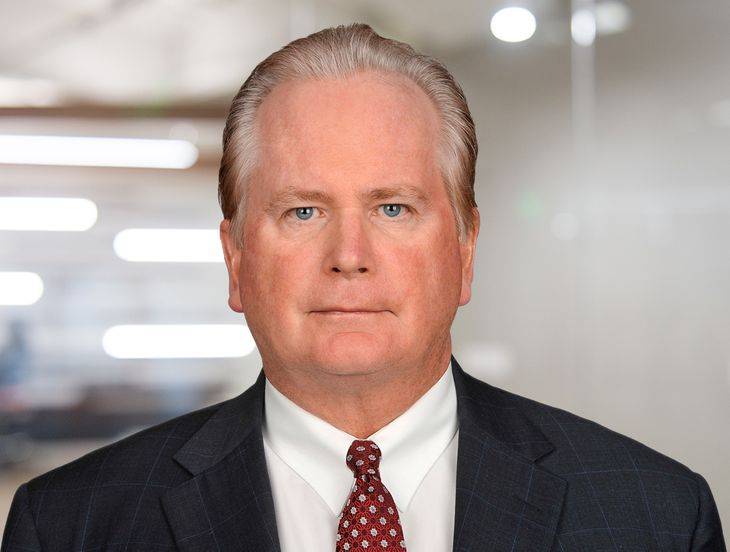WEB EXCLUSIVE - December 2017: The Top 14 Labor And Employment Law Stories
Insights
1.02.18
It’s hard to keep up with all the recent changes to labor and employment law. While the law always seems to evolve at a rapid pace, there were an unprecedented number of changes each month in 2017. December was no different, with so many significant developments taking place during the month that we were forced to expand our monthly summary beyond the typical “Top 10” list. In order to make sure that you stay on top of the latest changes, here is a quick review of the Top 14 stories from last month that all employers need to know about:
- Quartet Of Momentous Decisions From Labor Board – Over a two-day span in mid-December, the National Labor Relations Board issued four pivotal rulings that immediately begin the process of tilting the labor law landscape back to an even playing field:
- New Sheriff(s) In Town: The NLRB Issues New Test For Workplace Rules – The NLRB relieved employers of a great deal of uncertainty surrounding seemingly innocuous workplace rules and handbooks with a December 14 decision. The Labor Board overruled Lutheran Heritage, a seminal 2014 decision involving workplace civility rules, and issued a new test for facially neutral policies that potentially interfere with employees exercising their rights under the National Labor Relations Act (NLRA). Using a phrase that will be music to every employer’s ears, the NLRB will now seek to “ensure a meaningful balancing of employee rights and employer interests” when analyzing attacks on handbook rules and policies (read more here).
- Labor Board Overrules Unworkable Joint-Employer Test – The newly constituted Labor Board announced on December 14 that a troublesome joint-employer test adopted in 2015 would be immediately scrapped, instead reaffirming its prior reasonable standard for determining joint-employer status. Starting at once, the Board will follow the traditional common law principles requiring a finding of direct and immediate control in order to find that two entities are joint employers (read more here).
- NLRB Restores Stability After The Expiration Of Union Contracts – The NLRB restored stability for employers attempting to maintain the status quo following the expiration of a collective bargaining agreement. In the spirit of giving, outgoing NLRB Chairman Miscimarra and the newly constituted Republican majority Board delivered yet another holiday gift to employers on December 15 by further balancing the labor law landscape (read more here).
- Micro-Units Are Dead: Labor Board Returns To Traditional “Community Of Interest” Factors For Union Elections – One day after overturning the Obama-era’s joint-employer standard and in the waning days of Philip Miscimarra’s Chairmanship, the NLRB struck down the pro-union use of micro-units, a tool used to more easily organize a workplace. In a case in which Fisher Phillips partners represented the employer, the Board overruled the 2011 case of Specialty Healthcare & Rehabilitation Center of Mobile in a 3-2 decision on December 15, reinstating the traditional community-of-interest standard for determining an appropriate bargaining unit in union representation cases (read more here).
- Memo From Labor Board’s Top Attorney Signals Change Is On Its Way – The newly installed General Counsel for the National Labor Relations Board published a memorandum on December 1 indicating that the General Counsel is preparing to push to reverse many of the controversial positions taken during the Obama era, restoring much-needed balance and tilting the labor law playing field back to a reasonable level. Peter Robb’s memo is a harbinger of significant changes to the agency’s enforcement posture going forward, and should give hope to employers across the country – not just those with unionized workforces – that change will soon be on the way (read more here).
- Tax Reform Law Includes Paid Leave, Sexual Harassment Settlement Provisions – The Tax Cuts and Jobs Act (H.R. 1), passed by Congress on December 20 and signed into law by President Trump on December 22, contains several provisions that will directly impact employers and workplace law. Most notably, businesses will no longer be able to take a tax deduction for any sexual harassment settlement that contains a confidentiality provision or a nondisclosure agreement (NDA), and they can claim a tax credit if they offer up to 12 weeks of paid family leave to certain eligible workers. Human resources managers, in-house counsel, and business owners will want to familiarize themselves with these provisions in order to capitalize on the changes and adjust practices as necessary (read more here).
- Labor Board To Scrap Quickie Election Rule? Public Comment Requested – In the clearest sign yet that the National Labor Relations Board is ready to shift away from the strong pro-union stance that had been taken for the previous eight years, the agency announced on December 12 that it will seek public comment on the possible revision to the representation election regulations – often known as the “quickie election” rule. The 2014 rule was considered by some to be the crowning achievement of the Obama-era Labor Board, dramatically compressing the election timeframe and thereby tilting the scales in favor of unions. Now that the Board is led by a majority of Republican appointees, it appears ready to substantially revise the election rules once again, but this time with an eye toward evening the playing field (read more here).
- Could Congress Ban Arbitration Of Sex Discrimination And Harassment Claims? – A bipartisan group of federal legislators has turned their attention to the sweeping revelations of sexual harassment in the American workplace by introducing a bill that would prevent employers from forcing claims of sex discrimination or harassment into arbitration. If passed and signed into law, this legislation could have a profound impact on employment policies and practices, not to mention litigation that results from workplace conflicts. What do employers need to know about the Ending Forced Arbitration of Sexual Harassment Act, introduced on December 6? (read more here)
- Department Of Labor Seeks To Narrow Tip-Retention Prohibition – Several years ago, the Department of Labor said that an employer may not retain any of an employee’s tips, even if management takes no tip credit under the federal Fair Labor Standards Act's Section 3(m), and instead pays the employee not less than the full FLSA minimum wage in direct wages (plus any FLSA overtime compensation due). On December 5, the agency proposed regulatory revisions to rescind that prohibition, with a public comments deadline of February 5, 2018 (read more here).
- Google Wins California Pay Equity Class Action Lawsuit – But More To Come? – A California Superior Court judge in San Francisco handed Google a win in its defense of a putative class action brought by three former employees, dismissing the pay equity Complaint as to all three plaintiffs on December 6. While Google will likely face an amended Complaint that could revive the pay disparity lawsuit, this order may limit such claims by forcing would-be plaintiffs to allege something more than just citing to company policy or practice that allegedly resulted in women being less than men (read more here).
- California Wildfires Spur Employers To Take Workplace Safety Precautions – The devastating wildfires that swept through southern California in December prompted the state’s employers to take precautions to ensure their workers were provided safe working conditions. This included businesses providing masks and respirators, although the requirements and responsibilities might not be as clear cut as you think (read more here).
- Revised Overtime Rule Proposal Apparently Months Away – A recent U.S. Department of Labor regulatory status report released on December 14 indicates that no proposal to change the 2016 compensation revisions affecting the federal Fair Labor Standards Act's so-called "white collar" exemptions will be forthcoming for at least ten months. The latest timetable shows an October 2018 projection for a Notice of Proposed Rulemaking. The agency’s past practice suggests that even this estimated timeframe might well not come to pass (read more here).
- Supreme Court Resurrects Travel Ban 3.0 During Appeal – The Supreme Court permitted the president’s latest travel ban – dubbed Travel Ban 3.0 – to be fully implemented while the litigation regarding the policy proceeds through the federal appellate court system. The Court’s December 4 ruling is the latest twist in the saga that currently impacts the residents of six predominantly Muslim countries (read more here).
- California’s WARN Act Applies to Temporary Layoffs – A California appellate court has ruled that California’s WARN Act, which requires 60 days advance notice of “mass layoffs,” applies to temporary layoffs and furloughs. The case (Boilermakers Local 1998 v. Nassco Holdings, Inc.) involved a shipbuilding company that laid off about 90 employees for three to five weeks during a workload lull. The employees were notified on the day the layoff began. Their union sued for violation of California’s WARN Act; the trial court ruled in favor of the union and the appellate court affirmed on November 30. Sure the decision came down in November, but it was late enough in the month that we’ll include in December’s round-up (read more here).
- New Year’s Surprise: Seattle Changes Paid Sick Leave Law At Last Minute – Washington employers are already under the gun to develop policies and practices to meet the requirements of the state’s new paid sick law that takes effect on January 1, 2018. Those with multiple Washington locations have particularly been challenged to create a policy that complies with both state law and the laws in of various Washington municipalities, given that the state and city laws are not identical, and you are required to follow the law that is the “most generous” to employees. Now the city of Seattle has added another wrinkle by amending its Paid Sick and Safe Ordinance on December 11 – leaving those with operations in Seattle the potential need to rework their new policies immediately (read more here).
- Did Gig Economy Growth Contribute To Strong Jobs Report? – By most objective measurements, the Labor Department’s December 4 jobs report was solid. CNN Money reported that employers added 228,000 jobs in November, while the unemployment rate remained at a 17-year low of 4.1%. Meanwhile, average weekly paychecks increased by 3.1% over the last 12-months, the first time that reading has topped 3% in nearly seven years. According to global talent solutions firm Randstand Sourceright, the strong November jobs report from the Bureau of Labor Statistics can partly be credited to the gig economy. According to its analysis, 61% of employers plan to switch up a significant chunk of their full-time permanent positions (one-third or greater) to contingent jobs at some point in the near future. This continuing pivot towards a gig model has helped streamline operations and demonstrates the continued value of the freelance workforce for any organization (read more here).
- NLRB Reinstates Reasonableness Settlement Standard In Its First Reversal Under Trump Administration – On December 11, 2017, the NLRB ruled that an ALJ in Pittsburgh properly accepted a partial settlement offered by University of Pittsburgh Medical Center (UPMC) despite objections from the agency’s general counsel and the charging party. The decision swiftly reverses Obama-era policy and restores the “reasonableness” settlement standard. This was the first reversal under the Trump Board and overruled the Board’s 2016 U.S. Postal Service ruling that judges cannot accept partial settlements without the blessing of t2:02 PM 12/29/2017he general counsel and charging party unless the settlement offer constitutes a “full remedy of all of the violations alleged in the complaint.” In other words, unless the respondent’s settlement offer provides all the relief that the charging party would receive if successful in litigating the charge, the judge cannot accept the settlement if there is an objection. This, in turn, prevents the Board from reviewing such offers (read more here).
If you have any questions about these developments or how they may affect your business, please contact your Fisher Phillips attorney.
This Legal Alert provides an overview of specific legal developments. It is not intended to be, and should not be construed as, legal advice for any particular fact situation.
Related People
-
- Joseph W. Ambash
- Partner
-
- Steven M. Bernstein
- Regional Managing Partner and Labor Relations Group Co-Chair
-
- Charles S. Caulkins
- Partner
-
- Benjamin Dudek
- Partner
-
- Rick Grimaldi
- Partner
-
- Marty Heller
- Partner
-
- Todd A. Lyon
- Partner and Labor Relations Group Co-Chair
-
- Howard A. Mavity
- Partner
-
- James J. McDonald, Jr.
- Partner
-
- Richard R. Meneghello
- Chief Content Officer
-
- Joshua D. Nadreau
- Regional Managing Partner and Vice Chair, Labor Relations Group
-
- Megan C. Winter
- Regional Managing Partner














